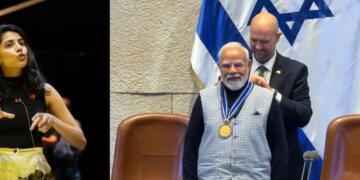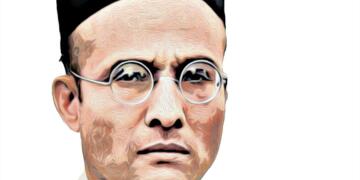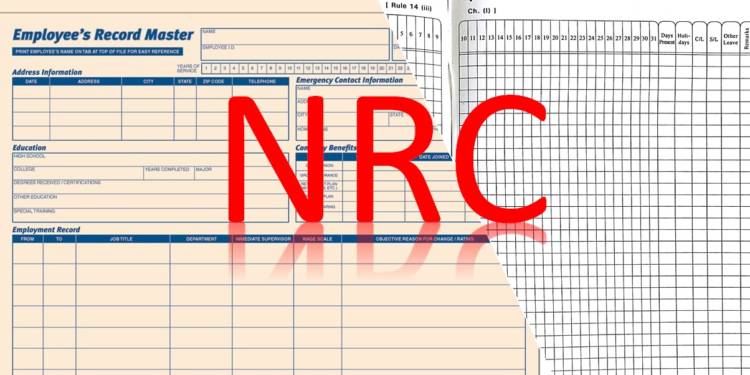Data collection and its preservation is not a newly discovered phenomenon. It has existed for millennia and has evolved from primitive methods to the currently used modern techniques. Keeping accounts and details of people is not something which has necessarily been seen as an authoritarian segment of politics, however, many, especially in India, are insinuating it to be such. One would be an abject fool to fall in the trap of exquisite lies that have been laid in the context of the National Register of Citizens, an exercise that the BJP has promised to carry out nationwide. It is not as if the government got this idea overnight and is just about to announce it anytime. It is a comprehensive exercise which requires due deliberation, especially learning from the mistakes in Assam.
The subject here, however, is not the NRC per se, it is the absence of it, in all aspects of human life. Of course, it will not be a ‘national’ register then, neither will it be a register for citizens. Therefore, for the lack of a better word, we will refer to it merely as a register.
We have all been to school. We’ve been through different classes. Needless to say, we had two registers at the very least. One, was the class register, where our names and all our classmates’ names were recorded, usually in an alphabetical order. Then, we also had a general register with the school’s administration, where every student’s name was recorded. This register made things easier. It prevented us from going around and sitting in any class we want, it ensured order, and it also made sure that only students belonging to the school were in the classes, and not just any random person pretending to be a student. The same was observed in colleges and universities, with much more sophistication.
Imagine any corporate structure without a proper register of its employees and their fundamental roles in the organization. Every such entity has a register of the people who work for it, including basic details like contact and residential information. What would be the status of a corporation which does not know about the people who work for it, right from the top to the bottom. It would bring an imminent collapse in no time. In the same line, we can also club media houses who so religiously are dolling out regular content against the NRC, spreading absolute falsehoods about the same. Do these media companies not have a register of their editors, anchors, reporters, production teams and all other employees?
Or imagine also the case of a library. Every library has a record of the books it houses, who borrows these books, for what period of time and when they return it. When one attends any conference, they first register themselves and make their presence officially documented at the event. The event would be a colossal failure if anyone were to just walk in and behave like a member, delegate or stakeholder.
Worse even, imagine a household, with open doors and unchecked, unrestricted entry of individuals. Surely it does not remain a household anymore. There is a reason why we live in one place, with one family and never do we, at random, enter the nearest house to sleep in, neither do we allow strangers to barge into our kitchen or tuck into our beds for a good night’s sleep.
What it all boils down to is chaos. Cruel chaos. The absence of a register can be an impediment to the smooth functioning of any entity. A system with an unregistered mass of elements is a system bound to fail. Similarly, a country with no authentic documentation of it’s citizens is a country surviving on the edge, its crime rates are subject to external influence, its intelligence agencies are handicapped by the lack of a missing variable in the equation, its resources are divided innumerably, its public funds fed by taxpayers are shared unjustifiably with non-citizens, and its democracy faces the risk of being taken over by the ‘outsider’.
This is not a dystopian imagination. Throughout its precious growth as a developing country, struggling to push its people out of poverty, India has been facing this dystopian ordeal, since its independence.
The fact is that the world would be a big lot of mess if people, or even things, were not documented for. Documentation is a necessity, and also a human hobby. It is perhaps one of the traits which organizes and disciplines our way of being. It should especially be a thing to fight for, for all those who wish to see the world becoming a ‘utopia’. Amusingly, these are the same people opposing it vehemently.
Now, if registration in all walks of life is acceptable, why is a National Register for Citizens not? Is it because a faction of Indian polity and intelligentsia is opposing it because that is their only job in new India? To oppose everything merely because the ‘other’ is doing it? Does it not make sense for a country like India, with a humongous population, to have a register of all its legitimate citizens?




























